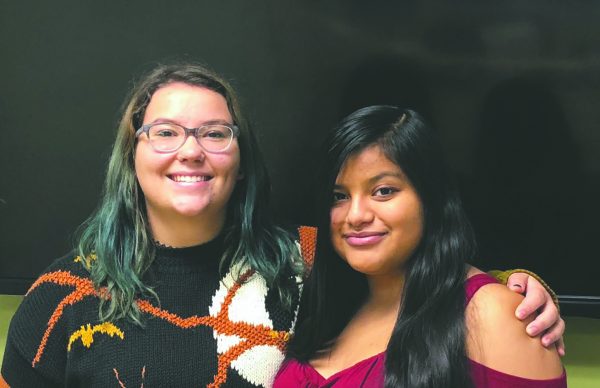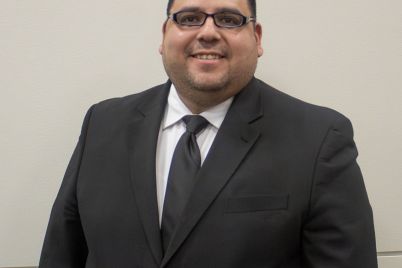
Sabrina Lanker and Alysha Rossetto are two students leading the project. Courtesy of SDA
By Nicholas Ketchum
Deputy Editor
Some students from Washtenaw Community College are organizing on campus to increase young adult voting through the “Campus Vote Project,” which is part of a nationwide effort.
The project pushes colleges and universities “to reduce barriers to student voting,” by providing registration and polling information to students, according to the project’s website.
This year, chapter leaders at WCC include Sabrina Lanker and Alysha Rossetto, both students at the college. Last year, Matea Pejic, a former WCC student, led the project, earning the college its most recent designation as a “Voter Friendly Campus.”
A Voter Friendly Campus is a designation awarded by the Campus Vote Project to colleges and universities that develop “a strategy to engage students and set clear goals so a path can be created in advance of upcoming elections.” The designation must be earned each year to remain current.
According to project adviser Peter Leshkevich, director of student development and activities, Pejic and WCC instructor Kimberly Jones originally introduced the project to the college in 2018.
Lanker, 19, who’s studying math and science, said she was surprised how many people don’t know if they’re registered to vote or aren’t sure how to register.
She said a core message she’s sending is that youth have strong political potential and that each vote counts, even in a state of nearly 10 million people.
“It does matter, and they do have a say in what happens in government,” she said. “It all adds up; sometimes elections can be really close … and a few people can change the outcome.”
Younger voters are likely more receptive to voting information delivered by peers of similar age and background, Lanker said.
“I think when [the message is] from a student to another student, then it has a pretty good effect. If I’m telling them why it’s important to vote—and not like a teacher or something—then it might have a better effect because I’m the same age and I’ve been through the same stuff,” she said.
Lanker also said she wants to spread better information to voters than what’s currently proliferating on campus, perhaps educating further about particular candidates and their positions in a non-partisan context.
A memo shared with the Voice indicates a variety of potential on-campus activities occurring throughout this semester. Among ideas being considered is a weekly voter information table in the Student Center, promotional pledge-to-vote banners, campus-wide emails discussing the importance of voting, reaching out to club leaders, classroom presentations, educational workshops, and inviting election clerks to WCC to help register voters on campus.
The group also plans to partner with the League of Women Voters to host registration “pushes” and help provide transportation for voters during elections.
Rosetto, currently a general studies major at WCC, said she is excited to be a student leader at the project.
“I really love it. It’s a good way to learn more about voter engagement and how to get people more involved, as well as just meeting new people that also have the same passion as you,” she said.
Both student leaders will work with Kimberly Kozal, also a WCC student. Kozal was recently selected by the Michigan Secretary of State Jocelyn Benson to represent the college on a “Collegiate Student Advisory Task Force,” whose 33 members represent colleges and universities across the state. She said she will assist Lanker and Rossetto in their duties on the Project.
Kozal, who is completing a paralegal studies/pre-law degree, is a non-traditional student with experience working at polling facilities during elections. She said the task force’s objective is to motivate young people to vote and advise on how to improve youth voter registration and election turnout.
She said turnout at her polling region in Green Oak Township is typically “abysmal.” She also stressed the importance of voting in primaries, where party candidates are nominated before the general election.
The statewide task force will meet three times in different locations around the state during this fall and will provide final recommendations to Benson later this year.
The Campus Vote Project at WCC will continue this semester, as well as next spring and fall, leading up to the general election in November 2020. The group meets every other week and reports activities to the project’s national organization.

